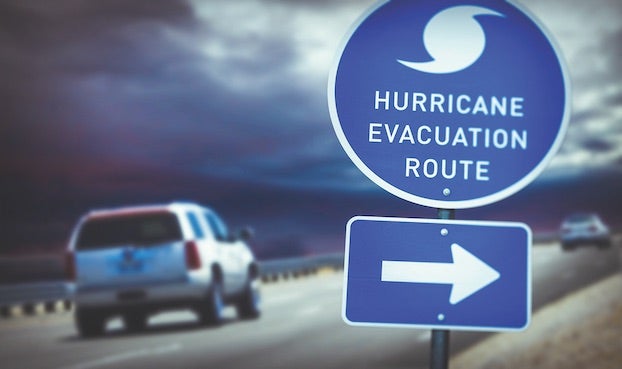It’s Hurricane Preparedness Week: Know the ‘Three P’s’ of readiness
Published 10:36 am Monday, May 6, 2024

- (Metro Creative Services)
By Damian Simoneaux | LWCC Safety Services Manager
Hurricanes and Louisiana seemingly go hand-in-hand. As a business owner or leader, you understand that it isn’t always a question of if a hurricane will strike but when.
As the 2024 Atlantic Hurricane Season approaches, LWCC offers steps you can take to prepare and protect your business and employees – especially through the lens of your workers’ comp policy. With thoughtful planning, and remembering the “Three Ps” — people, property, and papers — you can be confident that you are fully prepared, even in the event of the unforeseen.
People
Will you remain open for business? — Depending on the severity of the storm, your workers could be confronted with high levels of danger. If you are facing a significant weather threat, the best way to prevent injuries and avoid workers’ compensation claims is to close for the day.
Will anyone remain behind? — If any employees must remain onsite during the weather event, ensure they have proper supplies and equipment (e.g., drinkable water, nonperishable food, medical supplies, flashlights, etc.). However, no employee should stay behind if an official evacuation order is in place.
How will you pay employees? — Processing electronic payments following a hurricane may not be possible for some time. Have cash on hand to pay employees and contractors and take care of any necessary purchases.
Will workers be doing jobs outside their usual scope of work? — A natural disaster can present an all-hands-on-deck situation that could require workers to step into roles outside their own. In some cases, this may mean taking additional safety precautions. Ensure that your employees have the appropriate personal protection equipment and training.
Will you be able to address injuries? — While first aid should always be a consideration, it is crucial during a severe weather event. Have a protocol in place to address work-related injuries quickly and safely. Teach employees how to administer first aid, quickly obtain additional treatment, and follow the appropriate steps for a workers’s compensation claim.
Do you have an evacuation plan? — While you will most likely have a heads-up that bad weather is approaching, it is also possible for a storm to carry a much greater impact than anticipated. In these instances, everyone should clearly understand how to exit the building and reach safety. Of course, evacuation may not always be the best option. If there is active flooding or hazardous levels of rain and wind while employees are still in the building, the safest course of action could be to remain in place until it blows over. In this case, it is important to confirm that your workers’ compensation plan covers sheltering in place for natural disasters.
Property
While your people may be able to leave the vicinity of a storm, your property certainly cannot. Protect your place of business as best you can by taking care of the following before closing or evacuating if possible:
• Repair and fill above-ground tanks with fresh water.
• Fill fuel tanks of generators, fire pumps, and all company-owned vehicles.
• Remove as many goods as possible from the floor or ship them out of the facility.
• Shut off the natural gas supply to minimize fire risk.
• If possible, disconnect the main electrical feeds to the facility to prevent a potential fire caused by short-circuiting of damaged equipment.
Papers
The time immediately following a disaster is when you will need much of your business documentation the most. It is also when it will likely be most difficult to
access. Address that concern beforehand by ensuring you’ll have ready access to all essential documents.
• Ideally, you should have digital copies of your business records, with cloud-based access. This will ensure that your information is retrievable from anywhere. Having ready access to your business records can help you restore operations quickly or continue operations remotely.
• If digital records are not an option, protect physical copies as best possible. Use a stormproof container that protects against water and fire. Keep this container elevated to avoid high water situations, and store additional copies of your documents in a separate location.
• Any documents that may be needed for insurance or audit purposes are of particular importance. Depending on your policy expiration, you may be subject to a policy audit to determine the final premium. Maintaining timely records in an easily accessible method eliminates potential headaches and ensures records will be available, even if a natural disaster has just occurred. While we all hope for a calm hurricane season this year, taking steps now to prepare can bring peace of mind should a storm threaten.





